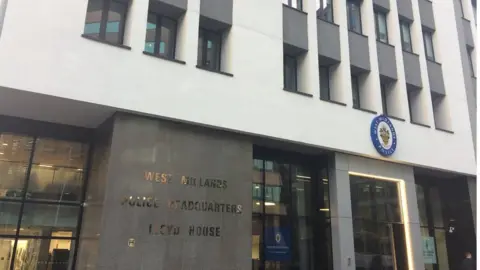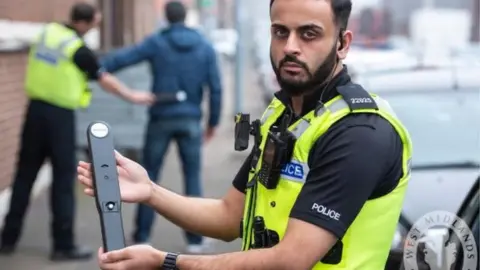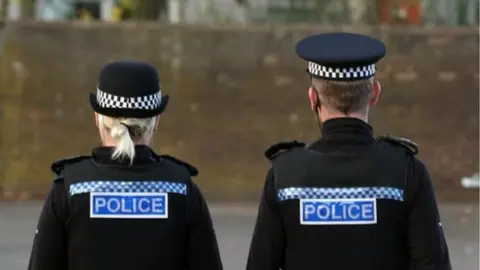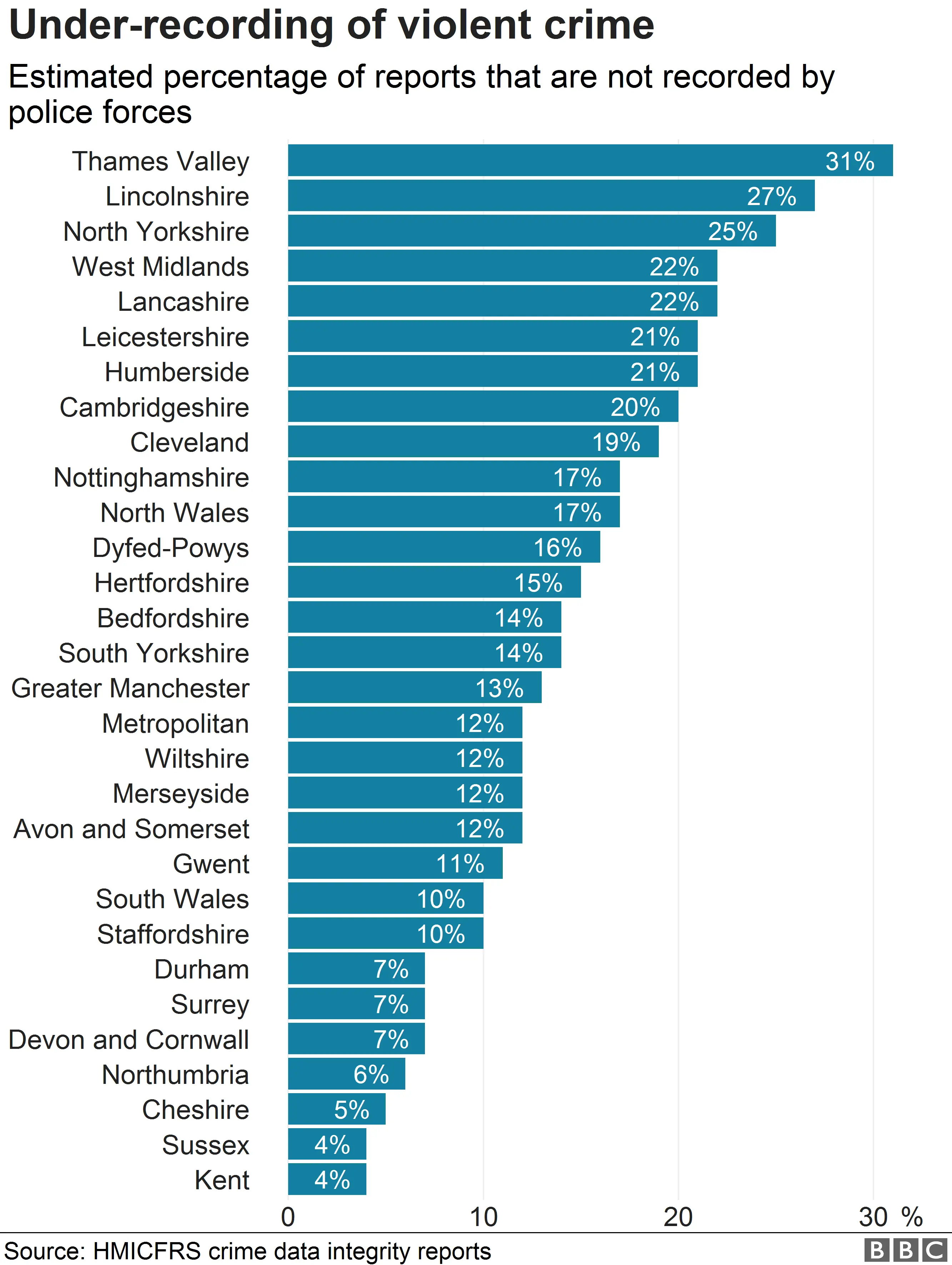West Midlands Police 'fails to record 16,600 violent crimes'
 BBC
BBCWest Midlands Police is "failing victims" and not recording more than 16,600 violent crimes each year, a watchdog has said.
The force was rated inadequate by Her Majesty's Inspectorate of Constabulary and Fire and Rescue Services, who said victims felt let down and not believed.
Only 78% of violent crime and 89% of sexual offences reported were recorded, it found.
The force said it had made "substantial progress".
About three-quarters of police forces around the country have already been inspected and of those, two-thirds were rated as either "inadequate" or "requiring improvement".
Reports from inspections were first published in 2016, after police forces throughout England and Wales were found to have an "utterly unacceptable" rate of accurately recording crime.
The recording rate by the West Midlands force remained "unacceptable and must be urgently addressed", the watchdog said.
"Too often the force is still failing victims of crime, including domestic abuse victims," it said.
Victim Support, an independent charity for crime victims in England and Wales, said the findings had "the potential to undermine public trust in the criminal justice system".
 West Midlands Police
West Midlands PoliceAn "unrecorded" crime is one that has been reported to the police but not recorded as an offence, and means the alleged crime may not have been investigated.
In 2017 HMICFRS said five out of six reported crimes were recorded by West Midlands Police but 38,800 crimes each year were not.
It was re-examined for violent crime and sexual offences in 2018, with inspectors auditing a sample of reports from 1 March to 31 May.
But they could not look at other types of crime because the force was updating its systems.
Of the 2,176 reports of crime audited, 470 related to domestic abuse - of these 354 were recorded.
Of those not recorded, 95 included offences classed as violent, such as common assaults, ABH, harassment and malicious communications.
The report said: "We found several examples of attending officers letting down victims by simply not believing them.
"Some incident logs contained closing comments that were completely different to the initial call and recorded no crime, without an adequate explanation."
 PA
PADeputy Chief Constable Louisa Rolfe, from West Midlands Police, claimed the watchdog had failed to recognise its strengths in recording crime overall.
She said: "It is frustrating that, despite substantial progress, our grading has remained as inadequate."
Ms Rolfe said the force was confident its current position was "much improved" and it could not be criticised for failing to put more resources into crime recording.
The watchdog also published a report on Leicestershire, which was again rated as "inadequate".
When it was first inspected in 2017, Leicestershire had the worst rate for recording crime out of 30 forces reported on.
While there were some improvements for 2018, the watchdog found the overall recording rate and the rates for violent crime and sexual offences were too low.
In 2018, the force recorded about 84% of reported crime, up from 75% the previous year, and 79% of violent crime, rising from 66%.
For sexual offences, 88% were recorded.
In terms of cancelled crimes, HMICFRS said Leicestershire's standards had become worse. Among 49 victims who should have been told a crime had been cancelled, 15 were not informed, which the watchdog said "remains a concern".
Leicestershire Chief Constable Simon Cole said: "Crime recording is a complex issue and this inspection looks at our technical compliance with a national crime recording system - something which is focused on numbers, categories, how crimes are manually logged on systems and then audited."
Diana Fawcett, of Victim Support, said: "By not recording crimes accurately the police are not then in a position to help victims access the help and support they need.
"These reports have the potential to undermine public trust in the criminal justice system and deter people from reporting crimes in the future."
Kate Russell, a spokeswoman for Rape Crisis England & Wales, said the reviews were "seriously concerning".
"Anyone who reports a sexual offence should be treated with respect, empathy and impartiality and have their report properly investigated," she said.

